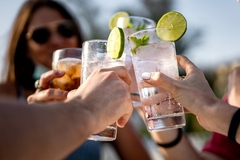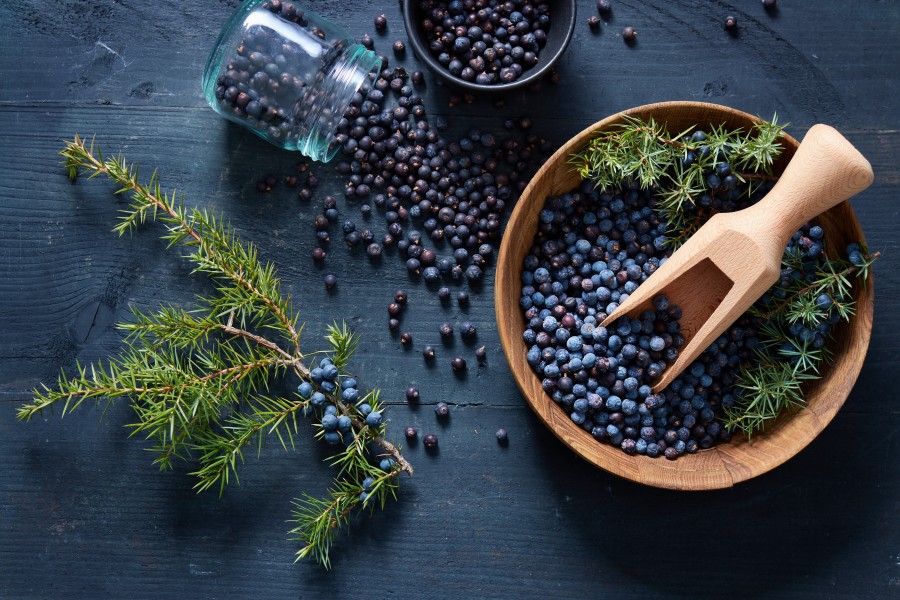
- Industry news
Industry news
- Category news
Category news
- Reports
- Key trends
- Multimedia
- Journal
- Events
- Suppliers
- Home
- Industry news
Industry news
- Category news
Category news
- Reports
- Key trends
- Multimedia
- Events
- Suppliers
How the EU’s “gin” ruling could reshape the low- and no-alcohol landscape
Key takeaways
- EU court confirms that “gin” must contain juniper-flavored ethyl alcohol at 37.5% ABV or higher, meaning non-alcoholic drinks cannot use the term.
- The ruling aims to protect consumer clarity and prevent unfair competition, reinforcing legal definitions and safeguarding gin producers’ brand integrity.
- Non-alcoholic beverage makers may face rebranding and marketing challenges, potentially reshaping labeling practices across the growing low- and no-alcohol sector.

An EU court has ruled that a non-alcoholic beverage cannot be sold as “gin,” as the name should be reserved for a specific alcoholic beverage. The ruling in Luxembourg is the latest example of nomenclature debates impacting the F&B industry and has been welcomed by gin producers.
Some believe that last week’s ruling from the Court of Justice of the European Union will be seen as a setback for the growing movement of low- and no-alcohol products, driven by younger generations turning away from alcohol and health-conscious consumers cutting back on spirits, beer, and wine.
The case was brought by a German association for combating unfair competition against the company PB Vi Goods. It sought an order prohibiting PB Vi Goods from selling a non-alcoholic beverage named “Virgin Gin Alkoholfrei,” which it had marketed as a “non-alcoholic Virgin Gin.”
Gin has a legally defined meaning
The association claimed that using the word “gin” was contrary to EU law (Regulation (EU) 2019/787), which says that gin must be produced by flavoring ethyl alcohol of agricultural origin with juniper berries. It also states that the minimum alcoholic strength by volume of that ethyl alcohol must be 37.5%.
The court found that there is a clear prohibition in EU law on presenting and labeling a beverage as “non-alcoholic gin” when it doesn’t contain alcohol. The fact that the legal name “gin” is accompanied by the term ‘non-alcoholic’ is irrelevant in that regard, it said.
The ban doesn’t stop the company from selling its non-alcoholic gin drink, but it cannot use the word “gin” on the label. The ruling is intended to protect consumers from confusion and also prevent unfair competition against what are deemed authentic gin producers.
Reaction from gin trade bodies
Unsurprisingly, gin producers have welcomed the court ruling, which they believe cements the protection of their iconic alcoholic drink.
The London-based Gin Guild believes the ruling will benefit the industry by safeguarding consumer clarity – ensuring the word “gin” is not confused with non-alcoholic botanical blends or “spirit drinks.”
It protects brand integrity as distillers who comply with the spirit definition can continue to build value and reputation without unfair competition from look-alike products, while reinforcing global standards.
Pal Gleed, director general of the Gin Guild, says: “The decision upholds integrity in the gin category and protects producers who invest in the craft of gin distillation. It means the word ‘gin’ remains a meaningful guarantee of alcohol-based botanical spirit, rather than a marketing label for a very different product.” EU law states that gin must be produced by flavoring ethyl alcohol of agricultural origin with juniper berries.
EU law states that gin must be produced by flavoring ethyl alcohol of agricultural origin with juniper berries.
What does the ruling mean for the beverage industry?
The ruling could signal some changes ahead for producers of non-alcoholic products, particularly in how these types of products are marketed and specifically what words appear on the label.
Any company using the name “gin” on a non-alcoholic gin product will have to rebrand or rename to comply, which could be costly and impact marketing.
Of course, innovation will continue in this space to keep pace with demands for alcoholic alternatives. A wave of innovation has occurred in this regard in recent years.
Pernod Ricard ramped up its activity in the no-alcohol category by introducing Beefeater 0.0% in January 2024, with an initial launch in Spain, and it was rolled out in other markets throughout 2025.
At the time of the launch, the company stated that the original Beefeater London Dry Gin had inspired the non-alcoholic alternative. Beefeater 0.0% maintains the brand’s iconic citric and juniper-forward profile, but without the alcohol, “creating a perfectly balanced and refreshing drinking experience.”
Ben Lomond Gin’s Non‑Alcoholic Botanical Spirit was also unveiled in July 2024.
More broadly, this case could set a precedent for how other spirit categories are treated regarding non-alcoholic versions.
The ruling also aligns with a broader trend in the EU around naming regulation: not just for spirits, but for food and drink more generally.
A long-running debate and court case continues in the EU around the use of “meaty words” in plant-based alternatives. Last month, the European Parliament voted to restrict the use of traditional meat terms, such as “burger” and “sausage,” for plant-based foods.











